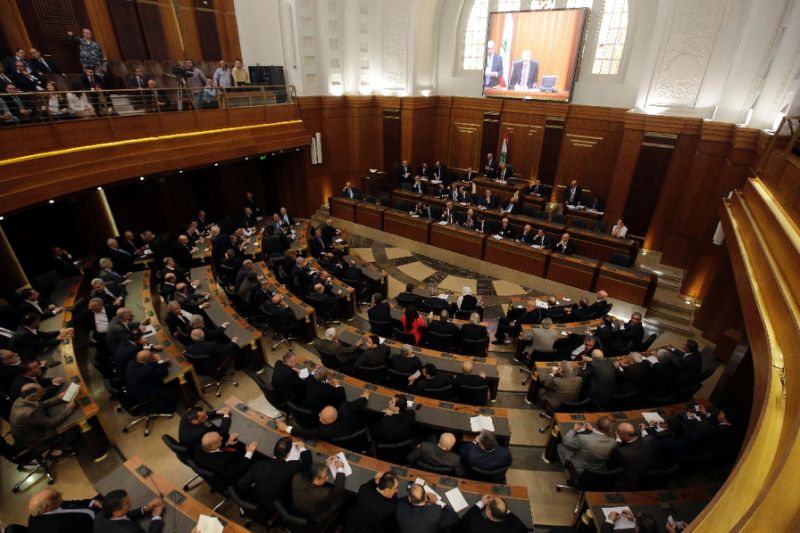Beirut – The ongoing dispute over a new parliamentary electoral law in Lebanon is creating a real crisis among the rival Lebanese political powers, who have demonstrated that they are incapable of reaching an agreement on a law that enjoys the support of the major blocs.
The efforts to resolve this issue have lessened in recent days even as the scheduled May 15 parliamentary session draws near. The session will be held with the sole purpose of extending parliament’s term, which has been repeatedly rejected by President Michel Aoun.
The president reiterated this stance by saying: “No one should dream of the extension or of adopting the old electoral law or that vacuum will take place.”
“It is time that we are able to agree on a new electoral law,” he declared.
“We succeeded in building national unity and we will work on achieving complete national partnership,” Aoun added.
Lebanon last held parliamentary elections in 2009. Since then, parliament twice extended its term after the political powers’ failure to agree on a new electoral law.
Education Minister Marwan Hamadeh questioned cabinet’s failure to convene during this period, asking in a statement: “Why doesn’t it meet in order to deal with the people’s concerns? It can convene while various bodies carry out contacts that can lead to an agreement on a new law.”
Minister of the Displaced Moeen al-Merehbi remarked however that the electoral law dispute cannot be resolved in cabinet.
He told Asharq Al-Awsat: “The government, which represents all political powers, cannot approve an electoral law in one or two sessions because starting the debate from zero could take up to two years.”
“If bilateral, tripartite or quartet talks cannot reach a formula that is approved by all sides, then how can a government devise a new law, whose main articles are still being contested?” he asked.
“The divide is very deep.”
“Parliament’s term is coming to an end. If God forbid we don’t reach vacuum, then we will head from postponement to postponement and from extension to extension,” Merehbi remarked.
The Mustaqbal Movement meanwhile appears to be insistent on distancing itself from internal disputes. Interior Minister Nouhad al-Mashnouq stated: “It is important during the dangerous transition period that the region is passing through for us to preserve ourselves on the security and political levels.”
He said during a dialogue with the executive board of the Movement: “We hang on to the idea of the state and the continuity of its institutions. We should be open to all electoral laws without exception.”
Kataeb politburo member MP Elie Marouni stated that “saving the constitutional institutions starts with approving an electoral law, because parliament is the mother of all authorities.”
“Without parliament, which represents the will of the people, there can be no authorities. We should approve a law that serves the nation and people. It is time for us to unite to save Lebanon before it is too late,” he stressed.
